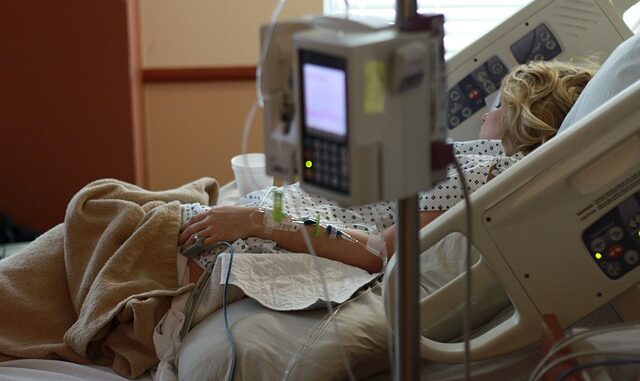
Hospital patients and their families will soon be able to request an urgent review if their condition deteriorates with the introduction of Martha’s Rule.
The patient safety initiative is set to be rolled out to at least 100 NHS sites from this April and will give patients and their families round-the-clock access to a rapid review from an independent critical care team if they are worried about their or a loved one’s condition.
This escalation process will be available 24/7 to patients, families and NHS staff, and will be advertised throughout hospitals, making it quickly and easily accessible.
The initiative is named after 13-year-old Martha Mills who died from sepsis at King’s College Hospital, London, in 2021, due to a failure to escalate her to intensive care and after her family’s concerns about her deteriorating condition were not responded to promptly.
Extensive campaigning by her parents Merope and Paul has seen widespread support for a single system that allows patients or their families to trigger an urgent clinical review from a different team in the hospital if the patient’s condition is rapidly worsening and they feel they are not getting the care they need.
Saving lives
NHS chief Amanda Pritchard said the programme had the potential to “save many lives in the future” and thanked Martha’s family for their important campaigning and collaboration to help the NHS improve the care of patients experiencing acute deterioration.
The national programme will build on NHS England’s Worry and Concern pilots launched at seven trusts last year, which developed and tested escalation methods for patients’ and families’ concerns.
Merope Mills and Paul Laity, Martha’s parents, said: “We are pleased that the implementation of Martha’s Rule will begin in April. We want it to be in place as quickly and as widely as possible, to prevent what happened to our daughter from happening to other patients in hospital.
“We believe Martha’s Rule will save lives. In cases of deterioration, families and carers by the bedside can be aware of changes busy clinicians can’t; their knowledge should be recognised as a resource. We also look to Martha’s Rule to alter medical culture: to give patients a little more power, to encourage listening on the part of medical professionals, and to normalise the idea that even the grandest of doctors should welcome being challenged.”
Expanding Martha’s Rule
As part of Martha’s Rule, health staff at participating hospitals will also formally record daily insights and information about a patient’s health directly from their parents or families making sure any changes in behaviour or condition are noted by the people who know the patient best.
Evaluation of the initial roll-out from at least 100 yet to be announced trust sites during 2024/25 will inform proposals for Martha’s Rule to be expanded further across all acute hospitals, subject to government funding.
NHS teams will also identify ways to roll out an adapted Martha’s Rule model across other settings, including community and mental health hospitals, where the processes may not apply in the same way.
The introduction of Martha’s Rule comes alongside other measures to improve the identification of deterioration, including the rollout last November of a new early warning system for staff treating children.
The Paediatric Early Warning System is built on similar processes already in place for adult, newborn, and maternity services. Here clinicians are able to track potential deterioration by formally recording changes in vital signs like blood pressure, heart rate, oxygen levels and levels of consciousness, with different scores representing the level of concern.
East Kent Hospitals
East Kent Hospitals already run a Call For Concern scheme which allows inpatients or their loved ones to directly report a decline in their condition that has been reported but not addressed by healthcare staff on the ward.
The service is the same as ‘Martha’s Rule’ and is run by the Trust’s Critical Care Outreach Team.

